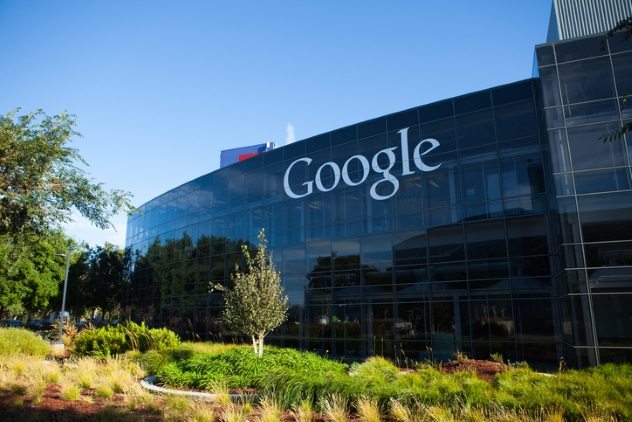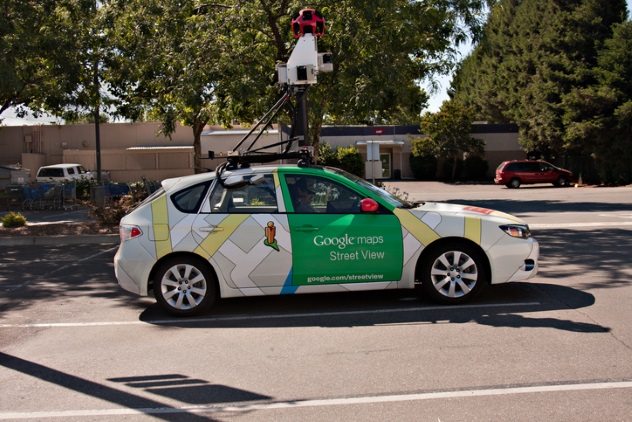 Humans
Humans  Humans
Humans  Movies and TV
Movies and TV The 10 Most Heartwarming Moments in Pixar Films
 Travel
Travel Top 10 Religious Architectural Marvels
 Creepy
Creepy 10 Haunted Places in Alabama
 History
History Top 10 Tragic Facts about England’s 9 Days Queen
 Food
Food 10 Weird Foods Inspired by Your Favorite Movies
 Religion
Religion 10 Mind-Blowing Claims and Messages Hidden in the Bible Code
 Facts
Facts 10 Things You Never Knew about the History of Gambling
 Weird Stuff
Weird Stuff 10 Cool and Creepy Facts about Collecting Tears
 Humans
Humans The Ten Most Lethal Gunslingers of the Old West
 Humans
Humans Ten Historic Men Who Deserve Way More Credit Than They Got
 Movies and TV
Movies and TV The 10 Most Heartwarming Moments in Pixar Films
 Travel
Travel Top 10 Religious Architectural Marvels
Who's Behind Listverse?

Jamie Frater
Head Editor
Jamie founded Listverse due to an insatiable desire to share fascinating, obscure, and bizarre facts. He has been a guest speaker on numerous national radio and television stations and is a five time published author.
More About Us Creepy
Creepy 10 Haunted Places in Alabama
 History
History Top 10 Tragic Facts about England’s 9 Days Queen
 Food
Food 10 Weird Foods Inspired by Your Favorite Movies
 Religion
Religion 10 Mind-Blowing Claims and Messages Hidden in the Bible Code
 Facts
Facts 10 Things You Never Knew about the History of Gambling
 Weird Stuff
Weird Stuff 10 Cool and Creepy Facts about Collecting Tears
 Humans
Humans The Ten Most Lethal Gunslingers of the Old West
Top 10 Ways Google Does Evil
Google is one of the biggest forces on the Internet. When we want to look something up, we Google it. When we want a decent browser, we download Chrome. We check emails on Gmail, watch videos on YouTube, write self-promoting bull on Blogger, and read list-based websites on our Android devices. When you think about it, it’s incredible that a company whose motto is “Don’t be evil” has come to be so utterly, ruthlessly dominant.
There’s a simple reason for that. Google gave up not being evil a long time ago. Take a good, hard look at the company in 2017, and it’s clear they’ve swapped being the good guys for being utter buttheads.
10 Monopolistic Practices

In summer 2017, the European Union handed Google a record-breaking $2.7 billion fine. Their reason? Google had abused its position of EU market dominance to shut competitors out of its search listings. And you better believe Google is dominant. In places like Germany, some 97 percent of Internet searching is estimated to go via Google. In other words, the company had created a monopoly on Europe’s online spaces.[1]
The actual ins and outs of the fine are nuanced, involving how Google lists its search results. Google prioritizes Google. If people want to buy stuff, they get links to Google shops. If they want reviews, they get links to Google’s review service. Competitors like Yelp, who don’t have their own search engine, get stuck on page four of a search or later. And who bothers going all the way to page four?
The EU argued that Google was stifling competition and staying at the top of the food chain not because their products were the best but because they sneakily blocked consumers from better alternatives. In an ironic twist, Wired argues it was only thanks to the US breaking up Microsoft’s monopoly in 2000 that Google was able to build their own.
9 Crushing Negative Stories About Google

Google likes to crush negative stories about Google. In practice, this means their search results have been known to penalize anti-Google articles. (If you found this on page 37 of a search, now you know why.) We know this because it happened to Gizmodo reporter Kashmir Hill, back when she was working at Forbes. She witnessed firsthand Google’s draconian attempts to hide a critical piece.[2]
The story takes place in 2011. Google was trying to promote its Plus social network on sites like Forbes ‘s. In a meeting Hill sat in on, Google representatives described how choosing not to feature Plus’s “+1” button would cause Google to punish Forbes in search rankings. Since sites rely on search to survive, Hill understood this to be blackmail. She turned it into a story and published it. Then things got heavy.
According to Hill, Google told Forbes their search rankings would suffer if the story stayed up. Forbes caved and canned the story. Then Hill noticed the cached versions had disappeared off Google Search far faster than they normally would, almost like someone was deliberately scrubbing the Internet clean of her anti-Google story. Care to guess who Hill thought was responsible?
8 Firing Scholars It Disagrees With

Google likes to splash its cash in important places. Washington, Brussels, and London are all drowning in seas of Google greenbacks. Plenty of this money goes to think tanks that support ideas Google agrees with, like the left-wing New America Foundation (NAF).
One of NAF’s key projects has been a thing called Open Markets. Open Markets was created to speak out against extreme concentrations of money and power as well as other stuff that goes with monopolies. A few years ago, the group started raising warning flags about Google itself. In 2017, Open Markets team leader Barry Lynn wrote a blog post praising the EU for hitting Google with its antitrust fine. Google responded by having him fired and shutting the entire Open Markets initiative down.[3]
It’s worth bearing in mind that Google does not own NAF. They’re simply one of many donors, albeit a very generous one. According to The Guardian, Eric Schmidt nonetheless acts like he owns the place. The moment Lynn’s blog post went live, Schmidt allegedly rang up NAF and tried to force them to take it down. Less than two months later, Lynn had been fired, and Open Markets was discontinued.
7 Censoring Speech

98 percent of all American mobile traffic goes through either Google or Apple. When one of those guys bans your app, you’ve got a serious problem. This is especially the case if your app was banned because Google and Apple don’t like what you’re saying.
In August 2017, Google banned social networking site Gab from its app store for “hate speech.” Gab specifically designed its platform to reflect the First Amendment. If something was protected by the US Constitution, you could say it on Gab. This led to speculation that the real reason left-wing Google censored Gab was because who was using it. Gab was conceived to be the right-wing version of Twitter.[4]
To be fair, Gab had some truly evil users, like Andrew Anglin, editor of the neo-Nazi site Daily Stormer. But then Twitter has accounts by the KKK, Westboro Baptist Church, and ISIS, and Google has yet to ban the Twitter app. You can see jihadist propaganda, pornography, speeches by Nazis, and images of people being decapitated on Google’s own YouTube. Yet Gab was the only platform banned for hosting extremist content.
6 Avoiding Paying Billions Of Dollars In Taxes

If Google has one overarching vision, it’s not to be a company that isn’t evil. It’s to be a company that doesn’t pay taxes. Over the past few years, several European countries have had to drag Google kicking and screaming into their treasuries, hold the company upside down, and shake it until all its misplaced millions fall out.[5]
Just this year, Google had to settle back taxes of €303 million with Italy, after the search giant funneled most of its Italian profits through Ireland (where corporate tax is lower). In May 2016, its French offices were raided in a tax probe. A month later, its Spanish offices were raided, too. Both cases are still ongoing. And then there’s Britain. In 2006, the UK launched a probe into Google’s hundreds of millions in unpaid taxes. It only ended in 2016, when Google finally agreed to pay £130 million.
Most of Google’s tax avoidance has been possible thanks to Ireland, through which it funnels about a third of its global earnings. But even in Dublin, Google makes a mockery of taxation. In 2016, it was revealed that Google only paid Ireland €42 million in taxes on €22 billion in revenue.
5 Demonetizing Harmless Channels

Owned by Google, YouTube uses advertising revenue to kick money back to channel owners. Unfortunately, many smaller channels and sites with a video component are dependent on this income to survive. That’s unfortunate because Google has a nasty habit of removing advertisements and demonetizing channels seemingly at random.
What channels have their money-making statuses rescinded often depends on what’s in the news. For example, it’s currently impossible to make money off stuff that mentions North Korea. But things are usually less clear-cut. A media storm over right-wing extremism can result in legitimate right-wing channels being demonetized. An outcry over homophobia can lead to LGBT channels that discuss dealing with homophobia getting their income slashed.[6] This dragnet approach screws over hardworking content creators, most of whom are completely innocent in the first place.
The worst part is the blatant hypocrisy: Big channels rarely suffer. Additionally, this censorship is effectively Google deciding what kinds of things we’re allowed to say online, free speech be damned.
4 The Pharmacy Shipping Scandal

Speaking of Google and censorship, there’s at least one case in the company’s history where it probably should have blocked certain content but didn’t. Between 2003 and 2011, Google allowed Canadian drug companies to place ads on their systems that deliberately targeted American consumers. They did this despite knowing that facilitating cross-border medication sales was illegal.[7]
Drugs bought clandestinely from outside the US aren’t covered by the FDA, for obvious reasons. Nor does Canada regulate drugs shipped outside its borders. This means that the drugs Google knowingly allowed to be advertised were unregulated and potentially dangerous. The Naked Security blog claims they knew it was illegal and had known since 2003.
It took a sting by the US Attorney’s Office of Rhode Island to bring the corporation to heel. They set up a fake Canadian pharmacy company, asked to place ads targeting Americans on Google’s AdWords network, and watched as Google did absolutely nothing to stop them. Google eventually settled with the Justice Department for $500 million.
3 Illegally Acquiring And Holding British Medical Records

One of Google’s big initiatives is DeepMind, a self-teaching AI that will revolutionize the world, or possibly just kill us all. One of the things DeepMind needs to learn is insane amounts of data. In 2015, Google got some of that raw data in a highly suspect way. In partnership with London’s Royal Free trust hospital, they were given the health records of 1.6 million identifiable British patients, without those patients’ consent. When the story came to light in 2017, Britain’s information commissioner claimed the way the data was handled constituted a breach of UK law.
To be fair to Google and DeepMind, they are mainly guilty of ignorance. The real idiots are the staff at Royal Free, who gave a random company huge piles of sensitive NHS data. Google even apologized (via their DeepMind subsidiary), but only after spending months insisting it knew the laws of Britain better than the people who wrote them. In August 2017, TechCrunch wrote a damning verdict of Google’s motives and alleged the company deliberately lied about its plans to the very people whose information it was stealing.[8]
2 The Wi-Fi Sniffing Scandal

Time and again, the story with Google seems to be the company doing wrong, feigning ignorance, and then doubling down and acting like jerkbags when they get called out. The Wi-Fi sniffing scandal is no different. It was the halcyon days of 2010, and Google was pushing to develop Street View. Part of the plan was including Wi-Fi access points. So Google Street View cars were automatically set to collect Wi-Fi access point information.
That sounds harmless enough, until it turned out that Google had been hoovering up Wi-Fi data packets along with the access information (“sniffing”). Suddenly, we were living in a world where Google was clandestinely collecting enormous amounts of data on . . . well, everyone.[9]
The scandal was huge, mainly because Google lied about it and refused to cooperate with authorities. France fined Google €100,000 for noncooperation. The FTC fined them $25,000 for noncooperation. Australia called it the single biggest privacy breach in history and demanded that Google destroy the collected data. Google pretended it had, only for their lies to later emerge. The same thing happened in the UK. In the end, Google’s lies and obstruction forced the company to settle with the US for $7 million.
1 Nearly Triggering An Actual War

In November 2010, Costa Rica and Nicaragua came to the brink of war over a Nicaraguan incursion into Costa Rican territory. The spark that nearly lit this regional conflagration was Google Maps. Google had accidentally placed the disputed border several miles into Costa Rican territory. A Nicaraguan commander had checked his position against Maps and led his troops into Costa Rica, sparking a major international incident.[10]
The story sounds funny, mainly because it didn’t end in bloodshed and a violent border war. But, as The New York Times wrote in 2013, the real worry came from Google arbitrarily weighing in via Maps on an active border dispute. Such ignorance can spark real confrontations in emotionally charged parts of the world. In other circumstances—such as on the heavily disputed China-India border, say—it could have even led to war.
That seems a fair summing up of Google in a nutshell. As we’ve seen above, the company sometimes crosses lines where real harm can be caused and then later claims ignorance. The worry with Google isn’t that they’re a truly evil company that wants to enslave us all; it’s that they’re an Internet superpower incapable of self-reflection or admitting when they’re wrong. When this hubris causes them to stray into the realms of privacy, patient data, pharmaceuticals, censorship, or border markings, that lack of self-awareness can wind up causing as much harm as real, intentional evil.
Read more about Google and its actions on 10 Events Surrounding Google’s Disastrous Adpocalypse and 10 Logos That Mean Way More Than You Think.








